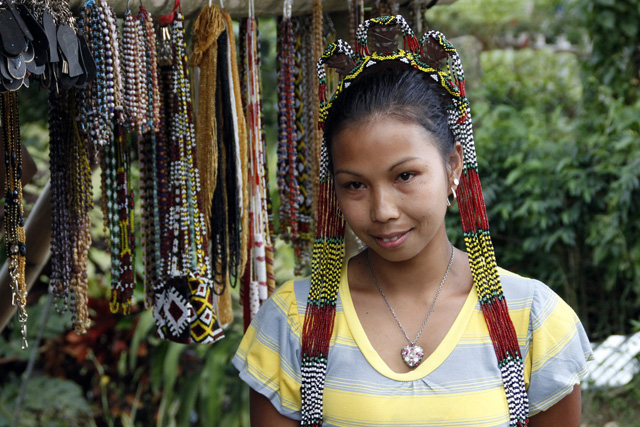
GENERAL SANTOS CITY (MindaNews / 05 May) – Using apostrophes in Blaan and Tboli could spell disrespect and is even a form of violence, said a group of professionals that has been advocating for the correct spelling and pronunciation of their tribal names.
Blaan and Tboli are among the country’s more than a hundred ethnic groups living in the southern fringes of Mindanao, particularly Sarangani, South Cotabato and Davao del Sur provinces.
“Read and pronounce Blaan as we Blaan read and pronounce it and so with Tboli, without the apostrophe,” said Josephine Cariño-Turner, co-founder of the KafyeBlaan Empowerment Inc., an advocacy group of Blaan professionals.
Cariño-Turner and her group have been trying for decades now to instill among people, Blaan children included, that “Blaan and Tboli with apostrophe is offensive, disrespectful and an utter disregard of our culture.”
“It may just be a tiny speck in a word, but, it bears enormous impact among fellow IPs (indigenous peoples) who continue to be marginalized,“ said the 35-year old Cariño-Turner who suffered bullying because of being a Blaan, when she was in first grade, forcing her to stop attending school. She had to wait for her sister to reach school age before she resumed her studies.
The now United States-based Cariño-Turner told this writer via online video interview that their advocacy work has yet to get the attention of Philippine government offices and agencies that continue to use apostrophes on the term Blaan in official public documents and citations.
There is really a need to change misspelled Blaan in national records of many government agencies, she said.
“Amusing to many but insulting to us,” she said of presidential declarations and official documents about supposedly historic events for two Blaan dreamweavers who are Manlilikha ng Bayan Awardees.
News media organizations in general are also guilty of misspelling and mispronouncing Blaan and Tboli, she pointed out.
There were initial steps taken in Congress for a law that would require the correct spelling and pronunciation of Blaan and Tboli in government offices and private institutions, but nothing concrete has come out so far, she said.
“Hopefully our current lawmakers can see the need,” she added.
Cariño-Turner explained that Blaan is a coined word, “bla” and “an”. Bla means counterpart or pair and the suffix an is there to express ownership or possession. When joined together, Blaan means “our counterpart tribe.”
In “To Bali,” To means people and Bali means on the other side. “To Bali” is today’s Tboli, she said.
The two tribes inhabit Sarangani and South Cotabato.
Blaan is pronounced with only two syllables: Bla-an or Bluh-un, and not Bilaan, Balaan, Bilanes or B’lan, she said.
Tboli, on the other hand, is not a contraction of “Tiboli” (or T’boli) and does not have an apostrophe between two consonant letters, explained a Tboli-English dictionary developed by missionaries Silin Awed, Lillian Underwood, and Vivian Van Wynen.
When pronouncing Tboli, a short vowel sound can be heard between the two consonants, similar to the sound of the vowel in the English word “the.” While there have been attempts to treat this short vowel as a regular vowel, the Tboli community has strongly objected to it, the dictionary states.
Discriminatory
The use of apostrophe in the word Blaan is among the acts that are cited as discriminatory in the 2019 Sarangani Indigenous Peoples Code, said Fulong Fredo Basino, who pushed for the enactment of the Code when he was yet the Indigenous Peoples Mandatory Representative in the Sarangani provincial board.
“There was a growing disregard on the correct spelling of the tribal name and we have to do something to correct it because it has become the root cause of conflict and even physical brawls among youth who get insulted when mocked with misspelled or mispronounced Blaan,” Basino said.
“Why put an apostrophe when it is not needed because there is no missing letter there?” Basino said, referring to the practice of non-Blaan people who assume there is a need to put an apostrophe because they cannot read the two consonants “b” and “l” together.
The Blaan dialect is laden with terminologies that bear successive consonants and no outsider must alter the way these are to be spelled or read, he said.
Basino, who is now an adviser of the Sarangani Indigenous Peoples Professionals Association, said a big challenge in their effort is the fact that many young Blaans need to be educated about their cultural roots because many of them are ashamed to identify themselves as IPs for fear of being discriminated against.
“What we are doing is not an easy process where we can see change overnight. It will take generations of sustained drive to educate people before we can see the fruit of our labor,” he said. (Rommel G. Rebollido/MindaNews)
0 Comments